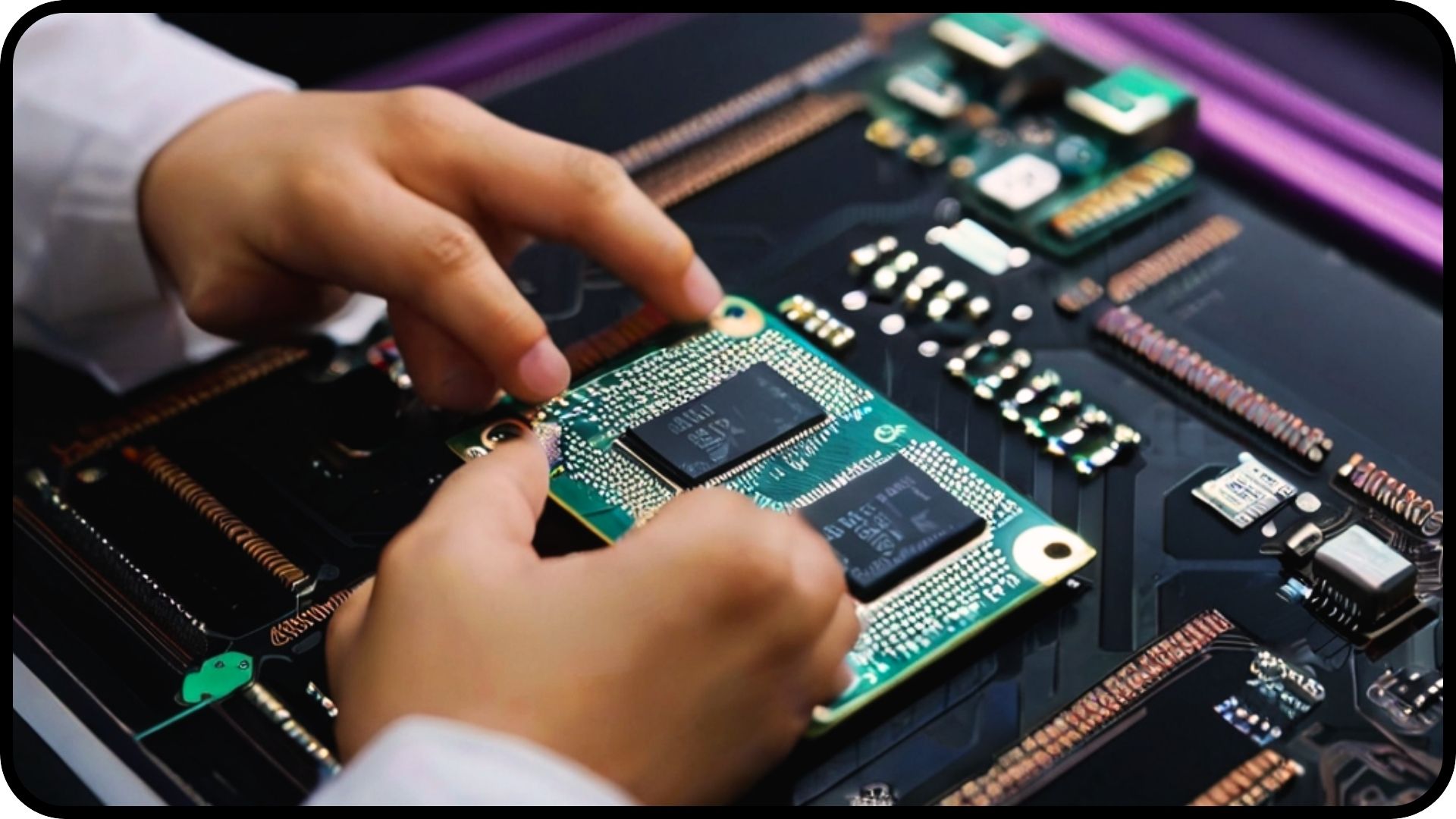Chinese scientists have made groundbreaking strides in the field of artificial intelligence (AI) chip technology, unveiling two ultra-low-power chips with unparalleled performance at the esteemed IEEE International Solid-State Circuits Conference (ISSCC) 2024. Led by Professor Zhou Jun and his team from the University of Electronic Science and Technology of China (UESTC), these innovations mark a significant leap forward in the quest for energy-efficient AI solutions tailored for mobile devices.
Chinese Scientist Sets AI Chips for Offline Voice Control
Traditional AI chips often grapple with high power consumption, limiting their practical application in real-world scenarios. However, through meticulous algorithmic and architectural optimizations, Professor Zhou and his team have managed to substantially mitigate this challenge, paving the way for a new era of energy-efficient AI chips.
The first chip presented by the UESTC team is designed to revolutionize offline voice control in smart devices. Unlike conventional chips, which struggle with noise interference and high wake-up energy consumption, this innovative chip boasts a novel architecture tailored for keyword spotting and speaker verification.
Leveraging dynamic computation engines, adaptive noise suppression circuits, integrated keyword and speaker recognition circuits, this chip achieves remarkable energy efficiency. With a recognition energy consumption of less than two microjoules per instance. Notably, it maintains an accuracy rate exceeding 95% in quiet environments and 90% in noisy settings, setting new global benchmarks in both energy efficiency and accuracy.
In a compelling demonstration, the chip was seamlessly integrated into a toy car. Showcasing its potential applications in various low-power voice control scenarios such as smart homes, wearable devices, and interactive toys. The versatility and efficiency of this chip herald a new era of seamless human-machine interaction, promising enhanced user experiences and extended battery life in mobile devices.

Chinese Scientist Set AI Chips for Offline Voice Control to Empower Healthcare with Seizure Detection
The second chip unveiled by the UESTC team targets a critical healthcare application, aiding in the detection of seizures in individuals with epilepsy. Engineered for use in wearable devices, this chip utilizes electroencephalogram (EEG) recognition to identify epileptic seizure signals. This enables timely intervention and medical assistance. Unlike existing designs that rely on extensive patient data for training, this chip employs a zero-shot retraining algorithm, eliminating the need for costly and time-consuming data collection processes.
With an impressive accuracy rate exceeding 98%, this chip offers a reliable solution for seizure detection. Therefore, empowering patients with greater autonomy and peace of mind.
Moreover, the chip’s energy efficiency is unparalleled. Boasting an average recognition energy consumption of only 0.07 microjoules, making it the most energy-efficient design of its kind internationally. This remarkable achievement not only enhances the chip’s practicality but also opens doors to broader applications in brain-computer interfaces and sleep monitoring.
Chinese Scientist Develops AI chips to Pioneer Brain-Computer Interfaces
In a captivating demonstration at ISSCC, the chip showcased its prowess in real-time EEG signal processing. This is aimed to enable users to control a robot’s movement through imagined motor commands. This feat underscores the chip’s potential applications beyond seizure detection, hinting at a future where AI-powered interfaces seamlessly interface with the human brain, unlocking new frontiers in human-machine collaboration.
Professor Zhou Jun and his team’s pioneering work represents a paradigm shift in AI chip technology, with implications spanning healthcare, consumer electronics, and beyond. With strategic partnerships with industry leaders such as SenseTime, Huawei Technologies, and BOE, the UESTC team is poised to drive further innovation and shape the future of AI-powered mobile devices. As China solidifies its position as a global leader in AI chip technology, the stage is set for a new era of energy-efficient computing, transforming the way we interact with technology on a daily basis.
Therefore, the unveiling of these energy-efficient AI chips marks a significant milestone in the quest for sustainable computing solutions. Underscoring China’s prowess in semiconductor innovation and its commitment to driving technological advancements for the betterment of society.
Land a High-Paying Web3 Job in 90 Days: The Ultimate Roadmap
